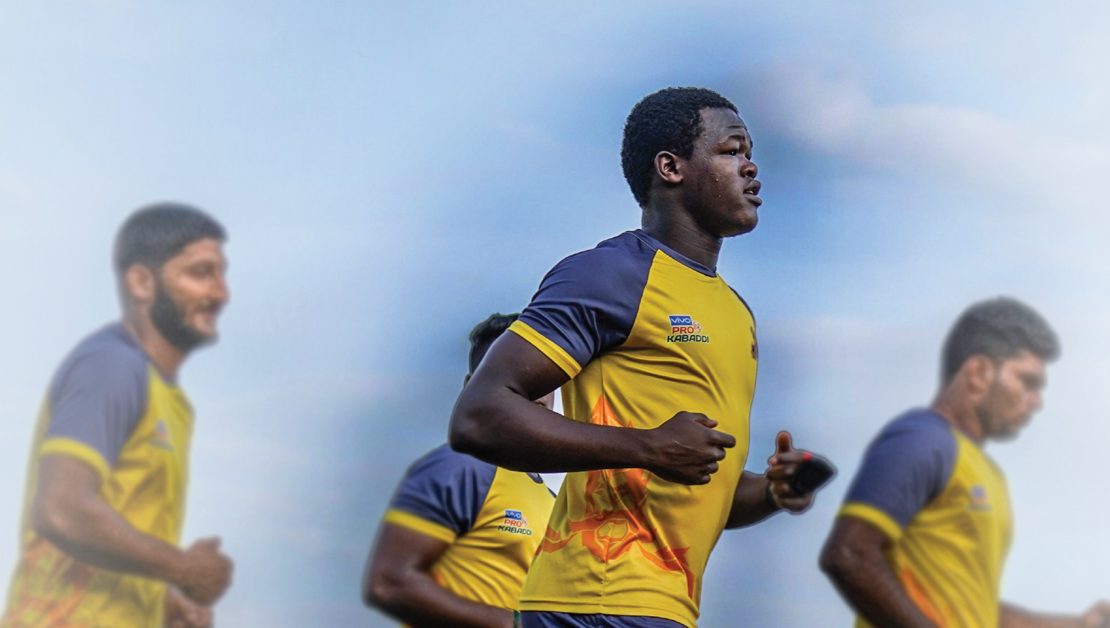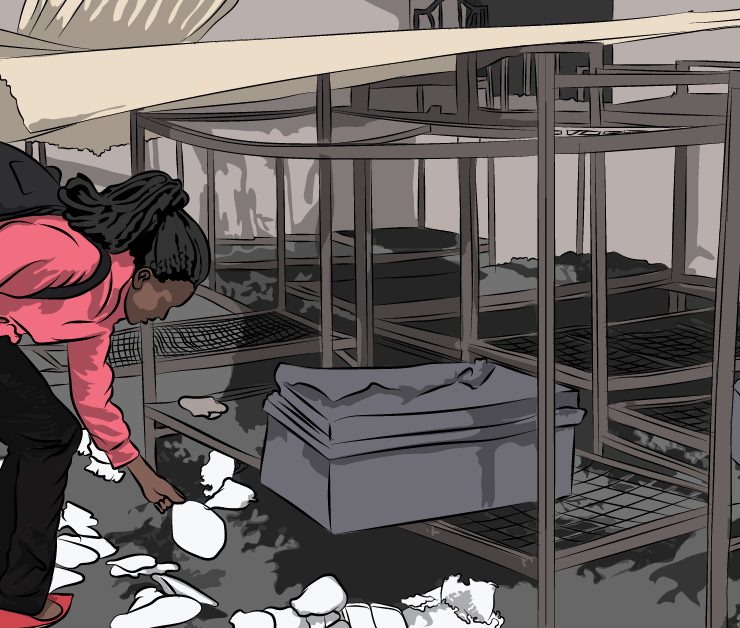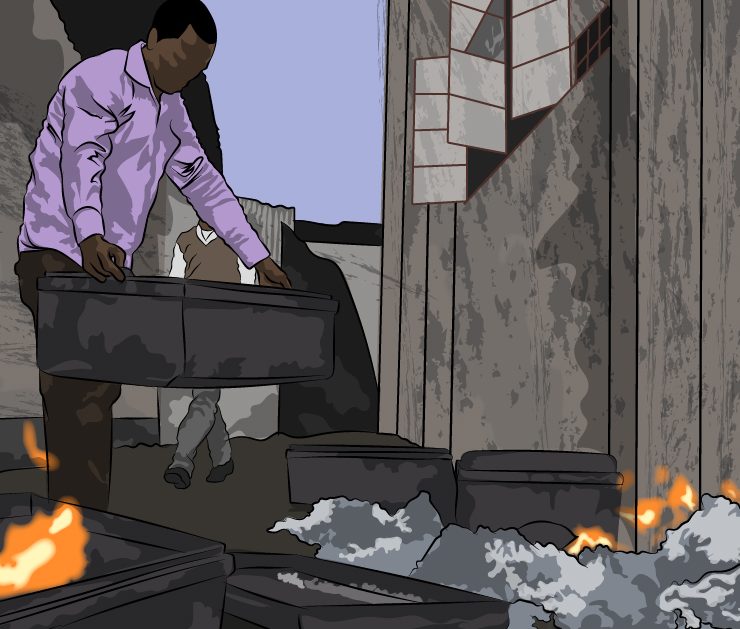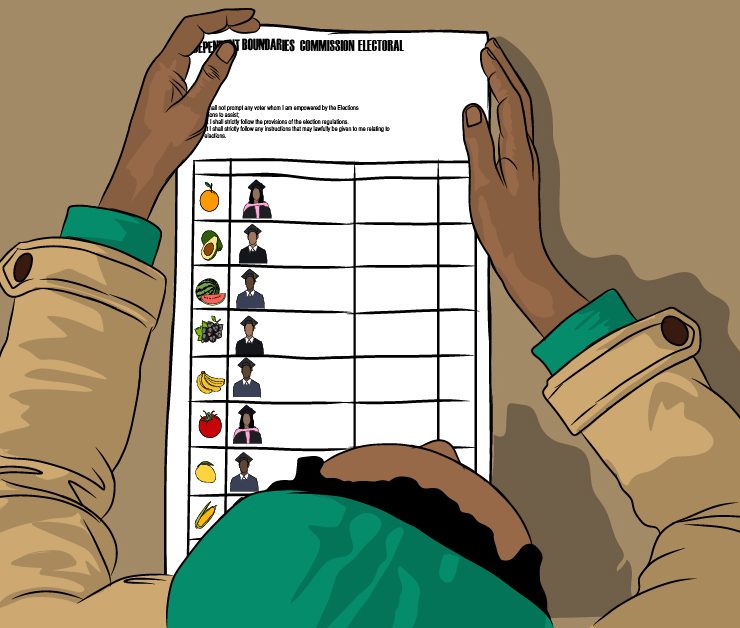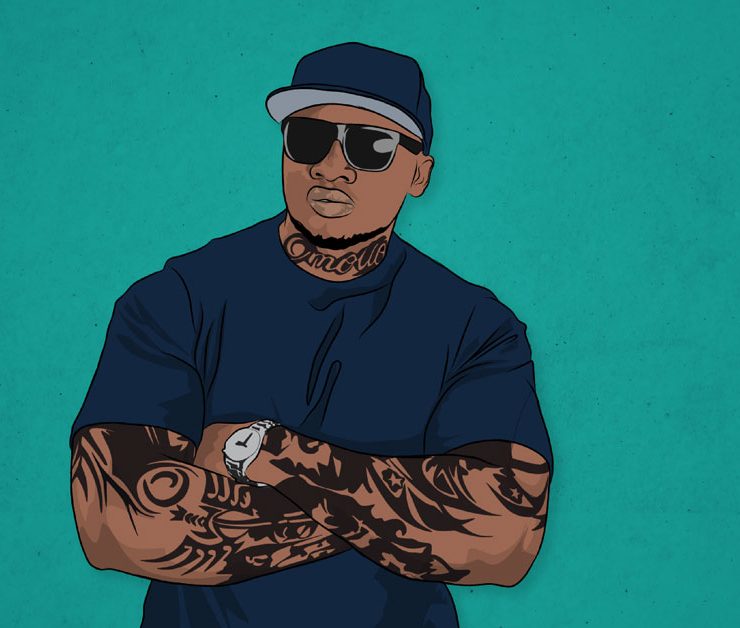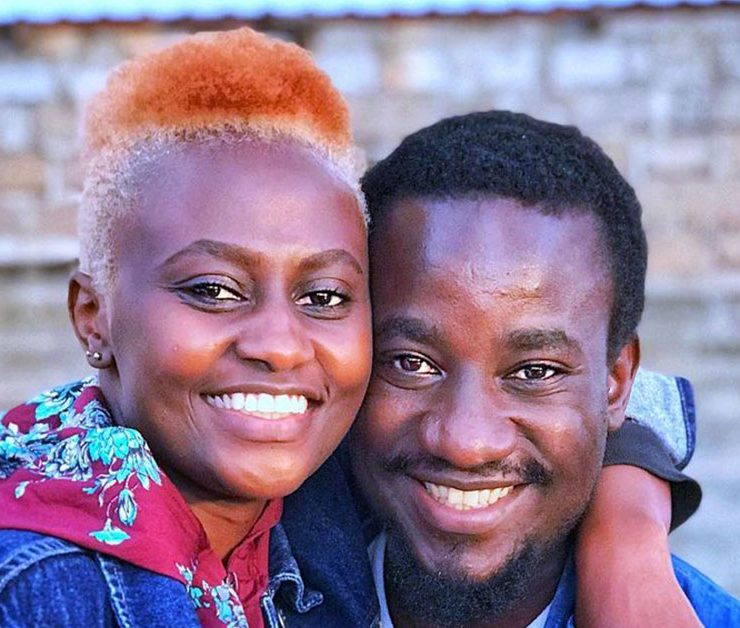“They always tell me nobody’s working as hard as you and even though I laugh it off man, it’s probably true,” Drake raps in his song ‘Light Up’ which features Jay Z.
Aside from the usual rap bravado of trash-talking other rappers and claiming the‘throne’, an introspective Drake lays out the rugged route to stardom saying, “Do not get too impatient when it takes too long.”
Kabaddi player Victor Obiero has lived by truisms as “trust the process” and “don’t get too impatient when it takes too long” in his entire sports career.
Victor spent his boyhood years plotting a breakthrough in football as a goalkeeper. The furthest he went was playing for Githurai All Stars in the semi-professional Extreme Super 8 League. He hung his goalkeeping gloves when the little-known sport Kabaddi offered him a shortcut to stardom.
Kabaddi is a contact sport between two teams of seven players that is played on a map. Each team stands on opposite sides of the map. The attacking team sends out a raider whom the defending team has to stop from tagging them and going back to their half. The goal of the sport is to either successfully defend or to carry out a raid.
Laventar Oguta introduced the sport to Kenya in 2014. After watching the sport on Youtube, Laventar scouted for players based on their physique and fitness and coached them. By 2016, she had assembled a national team that played in the Kabaddi World Cup. She currently coaches both the men’s and women’s teams.
Victor’s introduction to the sport in 2017 came by chance.
“I used to arrive early for practice at Kasarani when I was playing for Githurai All Stars and that is when Madam Laventar Oguta approached me,” Victor says.
“She asked me to join Kabaddi because of my body size. I joined their practice sessions knowing I was there for the coach’s sake. I did not want to come off as disrespectful.”
At six feet tall, Victor was more massive than I envisioned when I saw him play on TV. I wondered if he had to put on some muscle because of Kabaddi.
“No, I was this big even when I was a footballer,” Victor told me.
Among his teammates, Victor looked the part as most of them were either taller than him or more muscular. The conditioning in Kabaddi is more grueling than he expected because the sport requires more brawn compared to football.
It is Victor’s physique that caught coach Laventar’s attention at first.
“Because Kabaddi is a contact sport, the body size is important,” Laventar says.
When he started playing, Victor barely understood the rules. He would get moves wrong, with little care to make amends. Unlike football which has a ball to manipulate and a larger playing field, Kabaddi requires a player to be strong and sly to manoeuvre against raids and evade raiders. One of the most intriguing part of the game is that a raiding player has to chant the word Kabaddi. It should be loud enough for the opponents to hear, even in a packed stadium.
Victor juggled Kabaddi and football during the initial period of his introduction to the game, hoping one would give him his big break.
In 2018, Victor travelled to Dubai with the national team for the Dubai Kabaddi Masters. Kenya was the underdog in the tournament, playing against heavyweights such as India and Iran. Victor put up a massive show that attracted scouts from the Vivo Professional Kabaddi League in India even though he had played for only one year.
It was the recognition that convinced him to drop football and focus on Kabaddi though. The new sport presented an opportunity football had never done.
“I had never boarded a plane because of football, but Kabaddi enabled me to do that and I decided to get serious with pursuing it as a career,” Victor said.
At that time a rookie in the national team, Victor’s ascent to the Pro Kabaddi League in India exceeded his expectations.
“When coach Oguta informed me about the enquiries from the professional clubs, I could not believe it,” Victor says.
“It was my first tournament, yet I still got scouted over my teammates who were there before me.”
Victor signed a professional contract with Pro Kabaddi League side Tamil Thalaivas in 2018. An all-rounder who can play during attack and defence, Victor impressed his maiden employers. They rewarded him with a new contract in 2019.
This was a big deal to Victor and his mates in the national team. Kabaddi did not have a league when Victor went to the national team. What’s more, he had played the sport for only one year. Despite having the likes of Simon Kabura playing in the Pro Kabaddi League before him, Victor getting scouted over players he found in the national team got his teammates talking.
Laventar did not think Kabaddi would transform the lives of players like Victor. Once a professional rugby player, Laventar says she was encouraged to develop the sport for the sake of players. She had first-hand experience of how players hardly made a living out of football and rugby. Most played in amateur leagues, unable to break from the grassroots level.
“The joy for me is to see players earn a living from Kabaddi,” Oguta says. “Players like Victor are now even richer than me.”
Now back in Kenya because of the disruption of the Pro Kabaddi League in India due to the pandemic, Victor has ventured into the delivery business to replenish his coffers. As he rides his motorcycle to the occasional practice session at Kasarani, Victor delivers mail to offices in Westlands while carrying passengers on the way.
The Kabaddi national team holds its training sessions in Kasarani, as they prepare for the World Cup to be held in the last quarter of this year. The team misses the services of experienced players like Kaguru who cannot travel to Nairobi because of the pandemic. They are also not paid training allowances, a setback that coach Oguta acknowledges.
“Indeed, players are not getting allowances because we do not have sponsors on the table,” Oguta says.
Victor is hopeful that his professional stint will continue, especially after impressing at the Bangladesh Bangabandhu Cup in March, where Kenya finished second.
His heroics led Kenya to the final and earned him a nomination for the Sports Journalist Association of Kenya’s player of the month for March.
Kabaddi is picking up in Kenya thanks to the exploits of players like Victor. There are plans by the federation to set up a league that will be a feeder to the national team. []
“We are working to have a league locally,” Oguta says. “Depending on what the sponsors we have approached will decide, the league could be in Nairobi or
countrywide.”

